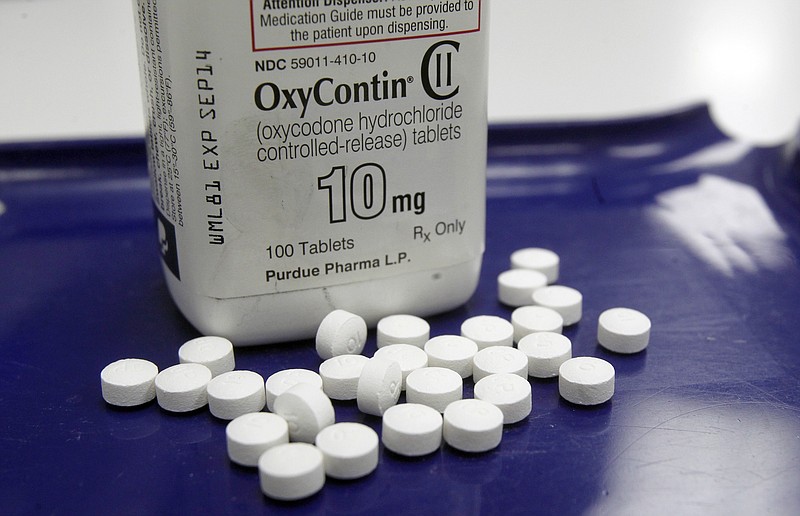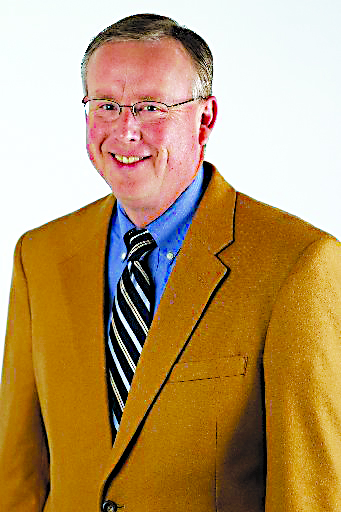View other columns by Mark Kennedy
Editor's note: The source for this column asked that her real name not be used to protect her medical privacy.
Every morning Jane breaks a hydrocodone pill in two and swallows half. Otherwise, the pain in the back of her neck begins to build until it feels "like someone is stabbing me with a knife," she said.
Sometimes lost in the alarm about prescription opioid abuse is the fact that, for thousands of Americans, prescription painkillers work for their intended purpose. Without them, patients such as Jane, who has spinal stenosis, say they would be miserable and unproductive - the soul-crushing side effects of chronic pain.
Meanwhile, according to the American Society of Addiction Medicine, "about two million [Americans] have a substance abuse problem involving painkillers." And drug overdose is the leading cause of accidental deaths in America, the group reports.
Those two realities rub against one another in modern culture; but it is the abuse (and the resulting fatalities) that often dominates headlines and colors people's thoughts about painkillers in general.
"Someone needs to tell the story of people who legitimately need painkillers and don't abuse them," Jane said.
Jane, 58, co-owns a business that operates from an office suite in a strip center in Chattanooga. She follows her morning dose of hydrocodone with three more half-pills throughout the day.
That amount of medicine holds her pain at bay and allows her to work and enjoy her family, she said. She can babysit her grandchildren
and manage her office. Without the meds, the pain eventually reduces her to tears, she said. Meanwhile, she gets no euphoric effect from the pills, just pain relief, she said.
Jane worries that people who legitimately need pain meds to function will be stigmatized and snared by laws designed to tighten access to narcotics. For example, some states now require pain patients to obtain weekly, not monthly, prescriptions for painkillers, which can create transportation problems and quadruple co-payments.
Jane said that for older pain patients especially, such as her 85-year-old arthritic father, this becomes a hardship.
Meanwhile, she is convinced that most drug abusers are not prescription pill- seekers, but people who buy imported street versions of popular opioid drugs.
An active baby boomer, Jane said she has lived a life filled with scuba diving, mountain biking and racquetball. About five years ago, she began to feel a pain in her neck on the days after she went mountain biking.
"The jarring effect of biking stirs up the nerves, I guess," she said.
She thinks some of her problem may also be traced to a car wreck. Her head went through a windshield during a car accident with a boyfriend in 1977, she said.
Over time, the pain became more intense.
"When the pain comes on, it's literally unbearable," she said.
Jane said she tried over-the-counter painkillers and anti- inflammatory pills, but none dulled the pain.
"Then one day, I remembered a pain pill I had left over from an old knee injury," she said. "It was probably four years old, but I was in so much pain that I took it anyway. Within 30 minutes, I had no pain."
She talked to her longtime doctor and they agreed on a pain-management regimen that seems to be working.
Still, Jane said, she is no stranger to the havoc drug abuse can cause. A nephew died at age 28 of a drug overdose.
"He was a good-looking kid. Smart. He could have done anything," she said.
Another close family member developed a dependence on Adderall, she said.
The trick is keeping a balanced understanding of how prescription drugs have a positive role to play in public health; even as some people choose to abuse them.
Twice, Jane said she felt so good she tried to ditch her pills. And twice, the pain came back with a vengeance.
For her, legally prescribed pain medicines make life worth living.
In plain talk, they are necessary for her pursuit of happiness.
Contact Mark Kennedy at mkennedy@timesfreepress.com or 423-757-6645.

